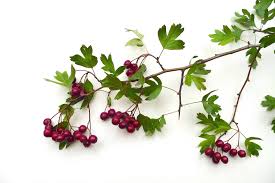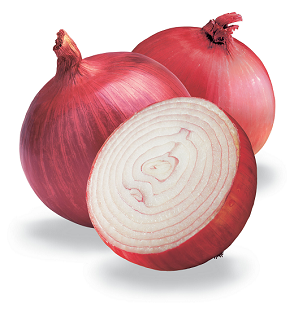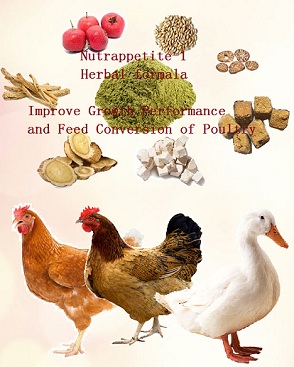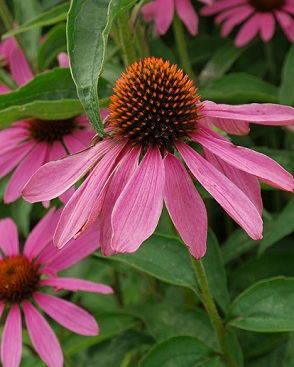- Plant-Based Protein
- Natural Plant Flavours
- Food and Dietary Supplement Ingredients
- Fruit Juice Powder
- Animal Nutrition Ingredients
- Water Soluble Ingredients
- Cosmetic Ingredients
- Unveiling the Therapeutic Potential of Rabdosia Rubescens: A Comprehensive Review
- What are the medicinal properties of Rabdosia Rubescens?
- Nutritional value of Orange Juice Powder compared to fresh orange juice.
- Processing Conditions and Nutritional Value of Orange Juice Powder
- Exploring the Versatility of Herbal Extracts in Food Flavors

What are the health benefits of hawthorn leaf?
Welcome to our blog! Today, we are diving into the world of hawthorn leaf and uncovering its incredible health benefits. Whether you're a fan of herbal remedies or simply curious about natural alternatives, hawthorn leaf is definitely worth exploring.


Onion Extract(Quercetin) and benefits side effect uses dosage
Onions (Allium cepa) contain a number of antioxidant compounds that are very effective in neutralizing the free radicals present in the human body.The impressive health benefits of onions include their ability to prevent and relieve symptoms of cancer, heart disorders, and diabetes. They also have strong antibacterial properties.

What you may get from us: If you're developing a product that contains plant active ingredients from Onion Extract.I think you can find the information or products you need here.
Simple production process in our factory: After the plant is collected, raw material will be processed by solvent extraction, separation and purification, filtration, concentration, drying and other steps to form the final products. We may also design a prouction process based on your special requirements.
Through the physical and chemical processes, those compunds you don't want was removed, and the compunds preferred was accumulated. Which make the products achieve the best effects.
How to use Onion extract powder: What you need is just use our products to formulate your products. It can be mixed with your other ingredients directly to make premix products. It can also be directly used for filling capsules or making tablets. Easy to say, our products are ready for Formula products.
|
Onion Extract (10%-20% Quercetin) |
||
|
Appearance |
Powder |
|
|
Color |
Yellow |
|
|
Partical size |
Normally pass through 80mesh |
|
|
Other parameter |
We also control other parameters like: moisture, Microbiological limits, Heavy metals. |
|
|
Pack size |
25 kg per paper drum |
|
|
Purity of active compunds |
10%-20% Quercetin |
By HPLC |
|
For pricing or more information, please call 86 29 88444632 or send an email to Sales@nutraherbsource.com
|
||
General Information
Scientific Name(s): Allium cepa L.
Common Name(s): Bulbus Allii Cepae, Common onion, Contractubex, Garden onion, Mederma, Onion
Plant Description
The onion plant is a perennial herb growing to about 1.2 m in height, with 4 to 6 hollow, cylindrical leaves. On top of the long stalks, greenish-white flowers in the form of solitary umbels grow to 2.5 cm wide. The seeds of the plant are black and angular. The underground bulb, which is used medicinally and consumed as food, is comprised of fleshy leaf sheaths forming a thin-skinned capsule and varies greatly in size (2 to 20 cm). The shape (flattened, spherical, or pear shaped) and color of the bulb depends on the variety.
Constituents of Red onion

Onions contain quercetin, a flavonoid (one category of antioxidant compounds). Antioxidants are compounds that help delay or slow the oxidative damage to cells and tissue of the body.
Health Benefits of Red onion extract
Antioxidant and Anti-Inflammatory Benefits of Onions
Onions contain quercetin, a flavonoid (one category of antioxidant compounds). Antioxidants are compounds that help delay or slow the oxidative damage to cells and tissue of the body. Studies have indicated that Red oion quercetin helps to eliminate free radicals in the body, to inhibit low-density lipoprotein oxidation (an important reaction in the atherosclerosis and coronary heart disease), to protect and regenerate vitamin E (a powerful antioxidant) and to inactivate the harmful effects of chelate metal ions.
Major dietary sources of quercetin include tea, onions and apples. Recent studies at Wageningen Agricultural University, the Netherlands, showed that the absorption of quercetin from onions is twice that from tea and more than three times that from apples. Based on studies conducted at The Queen's University at Belfast, Ireland and Wageningen Agricultural University, the content of quercetin in onions is estimated to be between 22.40 mg and 51.82 mg per medium-sized onion (100 gram). Further research at the Agricultural University on Wageningen showed that daily consumption of onions may result in increased accumulation of quercetin in the blood. Studies are in progress to determine whether the increased quercetin accumulation from eating onions translates into significant antioxidant benefit.
Help Control Blood Sugar
Eating onions may help control blood sugar, which is especially significant for people with diabetes or prediabetes.
A study in 42 people with type 2 diabetes demonstrated that eating 3.5 ounces (100 grams) of fresh red onion reduced fasting blood sugar levels by about 40 mg/dl after four hours.
Additionally, multiple animal studies have shown that onion consumption may benefit blood sugar control.
A study showed that diabetic rats fed food containing 5% onion extract for 28 days experienced decreased fasting blood sugar and had substantially lower body fat than the control group.
Specific compounds found in onions, such as quercetin and sulfur compounds, possess antidiabetic effects.
For example, quercetin has been shown to interact with cells in the small intestine, pancreas, skeletal muscle, fat tissue and liver to control whole-body blood sugar regulatio.
Cancer-Fighting Benefits
Eating vegetables of the Allium genus like garlic and onions has been linked to a lower risk of certain cancers, including stomach and colorectal.
A review of 26 studies showed that people who consumed the highest amount of allium vegetables were 22% less likely to be diagnosed with stomach cancer than those who consumed the least amount.
Moreover, a review of 16 studies in 13,333 people demonstrated that participants with the highest onion intake had a 15% reduced risk of colorectal cancer compared to those with the lowest intake.
These cancer-fighting properties have been linked to the sulfur compounds and flavonoid antioxidants found in allium vegetables.
For example, onions provide onionin A, a sulfur-containing compound that has been shown to decrease tumor development and slow the spread of ovarian and lung cancer in test-tube studies.
Onions also contain fisetin and quercetin, flavonoid antioxidants that may inhibit tumor growth.
Antibacterial Properties
Onions can fight potentially dangerous bacteria, such as Escherichia coli (E. coli), Pseudomonas aeruginosa, Staphylococcus aureus (S. aureus) and Bacillus cereus.
Furthermore, onion extract has been shown to inhibit the growth of Vibrio cholerae, a bacteria that is a major public health concern in the developing world.
Quercetin extracted from onions seems to be a particularly powerful way to fight bacteria.
A test-tube study demonstrated that quercetin extracted from onion skin successfully inhibited the growth of Helicobacter pylori (H. pylori) and Methicillin-resistant Staphylococcus aureus (MRSA).
H. pylori is a bacteria associated with stomach ulcers and certain digestive cancers, while MRSA is an antibiotic-resistant bacteria that causes infections in different parts of the body.
Another test-tube study found that quercetin damaged the cell walls and membranes of E. coli and S. aureus.
Precautions:
Onion extract is considered generally safe, with no known side effects.
Dosage
Onion-based quercetin 100 to 500 mg per day has been used in limited clinical studies.
- Prev:Common ivy extract/Hedera helix Extract and benefits,side effect, uses
- Next:Plants/Herbal Extract applicated in Feed materials or Additives











